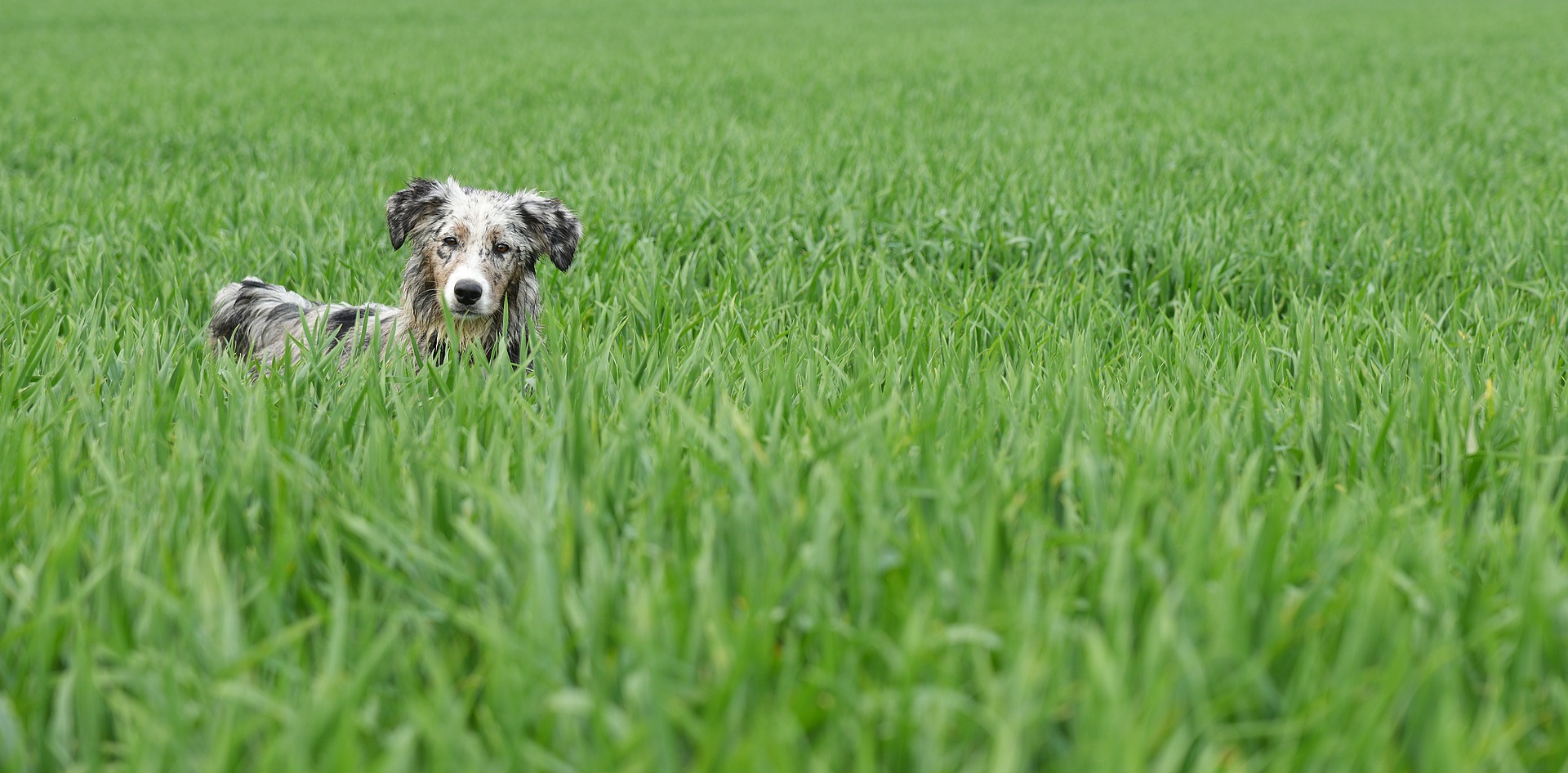If you own a dog, there’s a good chance that you have seen your pup munching at the blades of grass in your yard. This is not a strange behavior–most dogs chew on the grass at some point, and some do it almost daily. Eating things that aren’t food (such as grass or feces) can be a sign of a nutrient deficiency, but that isn’t always the case; even dogs with balanced food intake may still be drawn to eating grass. In this article, we will discuss the possible reasons why your dog eats grass.
Does eating grass make them feel good?
Like all plant matter, grass contains high amounts of fiber. Fiber plays a critical role in the diets of both humans and dogs–it helps absorb excess water in the digestive tract and bulk up your stools, decreasing the likelihood of constipation. If your dog feels they are having an issue with digestion or passing waste, they may instinctively graze to increase the fiber in their diet.
It may just be boredom.
Nibbling grass gives your pup something to do to pass the time if they are left alone outside. A dog that spends their time in the backyard while you are at work may turn to chewing on grass as they wait for you to return. Nervous dogs may munch grass to release pent-up energy from anxiety, in the same way, that some people bite their nails when they are nervous. Providing your pup with entertainment in your absence (for example, puzzle toys or a shirt that smells like you that they can lay on) and attention when you are home may help break them of this habit.
Eating grass is instinctual.
Wolves in the wild consume small amounts of grass to aid with their digestion. While we’ve domesticated our pups, these deep-rooted scavenging instincts still remain. Plus, some dogs just enjoy the act of chewing on grass. It provides an interesting texture, and fresh new grass growing in the spring can be quite flavorful. Behaviors caused by instinct can be difficult to put a stop to; in this case, at least, you may not even need to try to change it.
Is it dangerous if my dog eats grass?
The grass itself rarely causes an issue for dogs. While consuming a lot of it at once may cause an upset stomach and vomiting (as would eating a lot of any other food item), the grass is easy for most dogs to pass through their digestive tract. The danger with eating grass stems from what may be on it–pesticides and herbicides are usually toxic, and dogs can pick up parasites like hookworm or roundworm by eating grass near where another dog has defecated. If you are out walking in a park or on an extremely manicured lawn, it’s best to distract your dog to discourage them from eating any grass since it’s likely these dangers are present.
Overall, so long as it does not cause your dog consistent belly aches and vomiting, it’s not a huge behavioral issue if they occasionally graze on some grass. In most cases, there are other behavior modifications that need to be prioritized over some grass nibbling. If you want to stop them from chewing grass though, all you need is a pocketful of treats. When you catch them nibbling, walk away and call for them to follow you–use the “come” or “heel” command–then reward with a treat. After all, while grass tastes good, your treats are much more valuable!
Gulf Coast K9 Dog Training loves your dog – we love every dog! Call us today if you need help with dog training, obedience classes or play care in Sarasota, Bradenton, and Palmetto.





